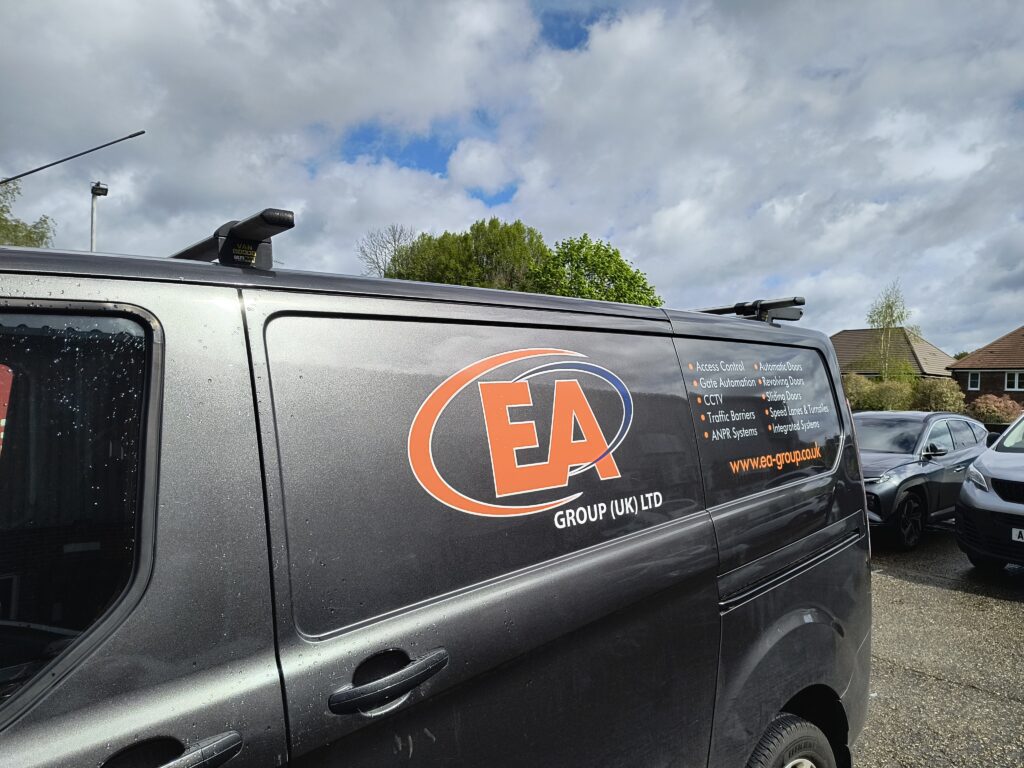Every revolving door needs to be up-kept and taken care of to maximise life-span, and this is especially true for automatic revolving doors.
Maintaining your automatic revolving door is key to maintaining safety, efficiency, and longevity of your commercial or office doors. Regular revolving door maintenance not only prevents costly repairs but also boosts the overall user experience. In this quick guide, we’ll explore essential maintenance tips to keep your revolving door operating as it should and how to get the most of your revolving door.
Why regular revolving door maintenance is essential
Routine maintenance of automatic revolving doors is vital for lots of reasons. You’ll need to consider the impact on:
- Safety: making sure that all components function correctly, reducing the risk of accidents.
- Cost efficiency: maintenance prevents minor issues from escalating into expensive repairs.
- Durability: it extends the lifespan of your commercial doors and entry solutions, providing better value for your investment.
It can be easy to overlook your revolving door and neglect maintenance, but this can lead to malfunctions, posing safety hazards and potentially resulting in significant financial losses.
Do all revolving doors require maintenance?
Not all revolving doors require the same level of maintenance and investment, but that doesn’t mean you shouldn’t still pay close attention and service them at regular intervals.
Revolving doors come in various types, including manual, automatic, and security revolving doors. One of the desirable factors of manual doors is that they require less frequent upkeep than automatic and security revolving doors. These access control options rely on sensors, motors, and control systems, making regular maintenance a top priority.
High-traffic commercial buildings should prioritise routine servicing to make sure that systems are running smoothly and to prevent unexpected breakdowns.

Daily and weekly maintenance checklist for your automatic revolving door
Scheduling a regular maintenance routine is key to the smooth operation of your revolving door. Here’s a checklist you can follow to help make sure you’re keeping on top of things:
Daily checks:
- Visual inspection: look for visible damages or obstructions in and around the door area.
- Glass panels and frames: make sure they’re clean and free from cracks or chips.
- Floor area: keep the entryway clear of debris that could obstruct door movement.
Weekly checks:
- Sensors and safety features: test sensors to confirm they detect approaching individuals and objects accurately.
- Lubrication: apply appropriate lubricants to moving parts to reduce friction and wear.
- Control panel: verify that all settings are correctly configured and functioning as intended.
Following a maintenance schedule checklist like this helps with early detection of potential issues, which will help you keep your automatic revolving door running reliably.
Common problems in revolving doors and how to fix them
Even with regular maintenance, revolving doors can encounter issues. Here are some common problems and their solutions:
Misalignment
Doors that don’t align properly can cause operational issues. It’s important to adjust the door panels and check the alignment mechanisms.
Sensor malfunctions
Faulty sensors may fail to detect users, leading to safety concerns. Be sure to clean sensor lenses and test their responsiveness, replacing if necessary.
Unusual noises
Grinding or squeaking sounds indicate friction or worn-out parts. Don’t forget to lubricate moving components and replace any damaged parts.
Slow operation
Doors operating slower than usual can frustrate users. Check the motor and control settings and consult the manufacturer’s guidelines.
Addressing these issues quickly extends the lifespan of your automatic revolving door and sustains much-needed efficiency.
Best practices for long-term automatic revolving door maintenance
To maximise the lifespan of your automatic revolving door, consider the following best practices:
- Seasonal inspections: conduct thorough inspections during seasonal transitions to address weather-related wear and tear.
- Professional servicing: schedule annual maintenance with certified technicians to perform necessary checks and repairs. We can help!
- Documentation: keep and maintain detailed records of all maintenance activities, inspections, and repairs for future reference.
- Training staff: educate employees on basic troubleshooting and the importance of reporting issues promptly.
Following these practices contributes to the durability and reliability of your commercial doors.
When to call a professional for revolving door maintenance
While regular in-house maintenance is beneficial, and can often be enough for manual revolving doors, certain situations require professional expertise:
- Persistent issues: if problems recur despite troubleshooting, it’s time to consult a technician.
- Complex repairs: tasks involving electrical components or structural repairs should be handled by professionals.
- Safety concerns: any malfunction posing a safety risk requires immediate professional attention.
So, how do you choose a qualified door maintenance company? You’ll need one that makes sure that repairs are conducted safely and effectively. Here at EA, we help customers with their revolving door maintenance.
Chat to our team about your revolving door
Regular maintenance of your automatic revolving door is essential for site safety, traffic flow efficiency, and system longevity. Following the schedule of daily and weekly checks, addressing common issues promptly, and adhering to best practices, puts your commercial doors in the position to function optimally.
Remember, if in doubt, seek professional assistance to maintain the integrity of your entry solutions. Prioritising revolving door maintenance not only safeguards users but also elevates the overall appeal and functionality of your office doors!
Looking to finding the right commercial door for your site? Interested in learning more about automatic revolving doors or revolving door maintenance? Speak to our specialists today.





















